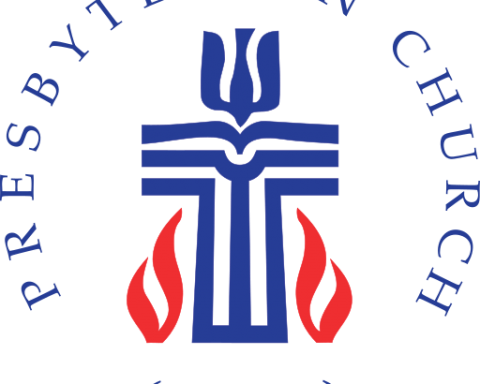This article advocates on behalf of overture 06-16 before the 223rd General Assembly. In particular, it responds to criticisms levied by the Advisory Committee on the Constitution (ACC) that the overture would “would reverse long-standing foundational principles of our denomination.” The overture, along with its full rationale, the ACC’s critique, and a proposed amendment from ACSWP, can be read on pc-biz.org, here: [06-16]. It will go before the Church Polity and Ordered Ministry Committee of the General Assembly.

In 1992, a non-denominational church in upstate New York took out full page advertisements in USA Today and The Washington Post urging Christians to oppose Bill Clinton in the then upcoming presidential election. In 1995, the IRS ruled that this congregation had violated the Johnson Amendment. As a result of this ruling, the church lost its tax exempt status. That decision was upheld in the Federal District Court for the District of Columbia in April of 1999.[1]
The Johnson Amendment, a section of the US tax code, is the result of a societal and cultural compromise: in exchange for receiving tax-exemption status, non-profit organizations, including churches, are prohibited from directly influencing voters in one (and only one) aspect of our political process: these organizations and their leaders may not use their official capacity to endorse or oppose specific candidates for political office. They are still permitted to endorse or oppose specific policy or legislation, to host non-partisan political forums and voter registration drives, and to serve as polling locations for elections. It is however, a rarely enforced provision of the tax code.
___________________________________________
Bearing in mind that this amendment to the book of order would be subject to future authoritative interpretation, it is the opinion of its authors that “acting in an official capacity” is restricted to speech from the pulpit and communication that is the result of a governing body or committee acting in their official capacity.
___________________________________________
During the fall 2017 legislative session, the US Congress considered a spending bill that included language limiting the ability of the IRS to investigate claims of endorsements from the pulpit or money flowing from congregations into political coffers, effectively repealing the Johnson Amendment. This language only appeared in the House of Representatives version of the tax bill, and it was removed during the reconciliation process with the Senate version of the bill. That legislation was ultimately signed into law by President Donald Trump. It is expected that Congress will revisit this issue during the fall legislative session of 2018.[2]
Opponents of the Johnson Amendment claim that the provision infringes on the protected free speech of pastors and congregations. Proponents of preserving the provision fear that a repeal could lead to pastors and congregations experiencing pressure from politicians to explicitly endorse them in their election bids. It could also lead to political contributions being funneled through churches in an effort for political contributions to be eligible for tax exemption and reporting requirements. None of the repeal proposals address the tax-exemption status of churches or seek to require additional reporting for churches engaging in political activity.[3]
In June 2018, the General Assembly of the PC(USA) will consider an overture from the Presbytery of Western North Carolina that would include language similar to the Johnson Amendment in the Book of Order:
“No congregation, session, presbytery, synod, or national office of the Presbyterian Church (U.S.A.), nor any individual acting on behalf of or in an official capacity for the above institutions, shall publicly endorse or oppose, or otherwise encourage or discourage others to vote for or against an individual running for public office.”[4]
This is broad language intent on accomplishing two tasks and two tasks alone:
1) prohibiting endorsements or expressions of opposition from the pulpit, and
2) prohibiting congregations, presbyteries, synods, or the General Assembly from intervening in an election on behalf of or against an individual running for public action. (Such intervening action would include monetary contributions to individual political campaigns.)
The PC(USA) remains a diverse denomination, with a variety of political view points represented. My own congregation contains both Trump voters and “never-Trumpers”; we have Democrats, Republicans, Independents, and the politically unaffiliated or apathetic. Pastors in our denomination are generally practiced in exercising restraint and discernment when expressing their political preferences. Even so, the relationship between pastor and congregation is tricky and requires significant discernment on what is appropriate for each particular context. Bearing in mind that this amendment to the book of order would be subject to future authoritative interpretation, it is the opinion of its authors that “acting in an official capacity” is restricted to speech from the pulpit and communication that is the result of a governing body or committee acting in their official capacity.
___________________________________________
Speaking to the pressing moral issues of our time is a vital expression of our prophetic identity and responsibility, and to prohibit such speech would be an abdication of who and what we are called to be as followers of Christ and as Christ’s body.
___________________________________________
When we speak from the pulpit or from the combined discernment of a representative body of the church, we speak with the unique and powerful authority of scripture and of Christ who has called us into community with one another. With this authority comes the responsibility to avoid abuses of authority and to not infringe upon the principle of individual discernment for members of our congregations and to cherish and uphold the diversity of thought present in our congregations. Given this authority and responsibility, it would be ill-advised to say from the pulpit, “I endorse candidate ‘x’ for the office of ‘y’ for the following reasons.” In most churches of our denomination, this is already the expectation and standard. Given our corporate authority and responsibility, it would place congregations and other institutions of the church in grave peril should those bodies begin to directly endorse or oppose candidates or directly contribute financially to one campaign over another. These are the issues this overture seeks to address. Any other expression of political leanings (ex. Discussions at coffee hour or yard signs in front of the manse) would be at the discretion of the pastor after discerning what is appropriate.
This overture does not address how pastors and institutions of the church ought to conduct themselves regarding social justice witness and policy advocacy. Those activities would still be permitted and are encouraged elsewhere in our Constitution. Speaking to the pressing moral issues of our time is a vital expression of our prophetic identity and responsibility, and to prohibit such speech would be an abdication of who and what we are called to be as followers of Christ and as Christ’s body. This overture allows for that work to continue while insuring that our congregations and institutions remain uncorrupted by individual politicians.
***
Author Bio: Jacob is a native of coastal Georgia. He holds a bachelor’s degree in religion and philosophy from Piedmont College and a Masters of Divinity from Princeton Theological Seminary. Jacob and his wife Catherine currently reside Marion, NC, where Jacob serves as the pastor of First Presbyterian Church. They live with their dog, Max, and four cats: Albus, Mosby, Duncan and Luther.
[1] New York Times. “Court Upholds I.R.S. Penalty For Church Ad In ’92 Election,” https://www.nytimes.com/1999/04/01/us/court-upholds-irs-penalty-for-church-ad-in-92-election.html (accessed May 28, 2018).
[2]The Washington Post. “Trump promised to destroy the Johnson Amendment. Congress is targeting it now.” https://www.washingtonpost.com/news/acts-of-faith/wp/2017/06/30/trump-promised-to-destroy-the-johnson-amendment-congress-is-targeting-it-now/?noredirect=on&utm_term=.a41e246253ce (accessed May, 28, 2018).
[3]Americans United: Project Fair Play. “Talking Points.” http://projectfairplay.org/talking-points (accessed May, 28, 2018).
[4]“On Amending G-3.0104 to Prohibit Public Endorsement of Individuals Running for Public Office—From the Presbytery of Western North Carolina.” https://www.pc-biz.org/#/search/3000260 (accessed May, 28, 2018).






Unbound Social